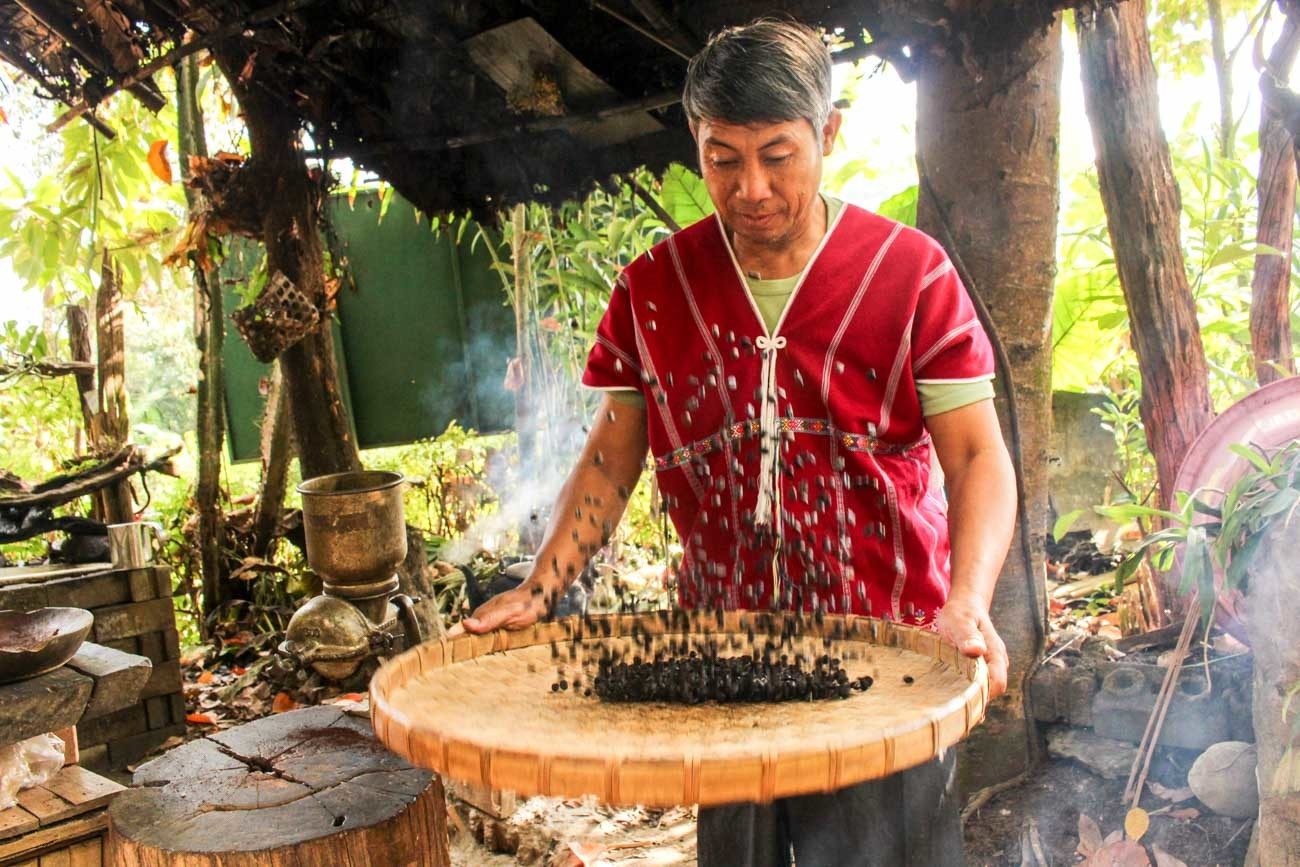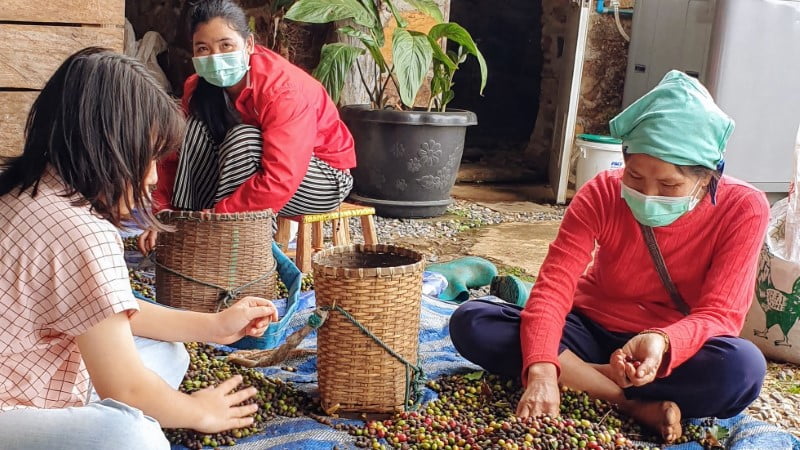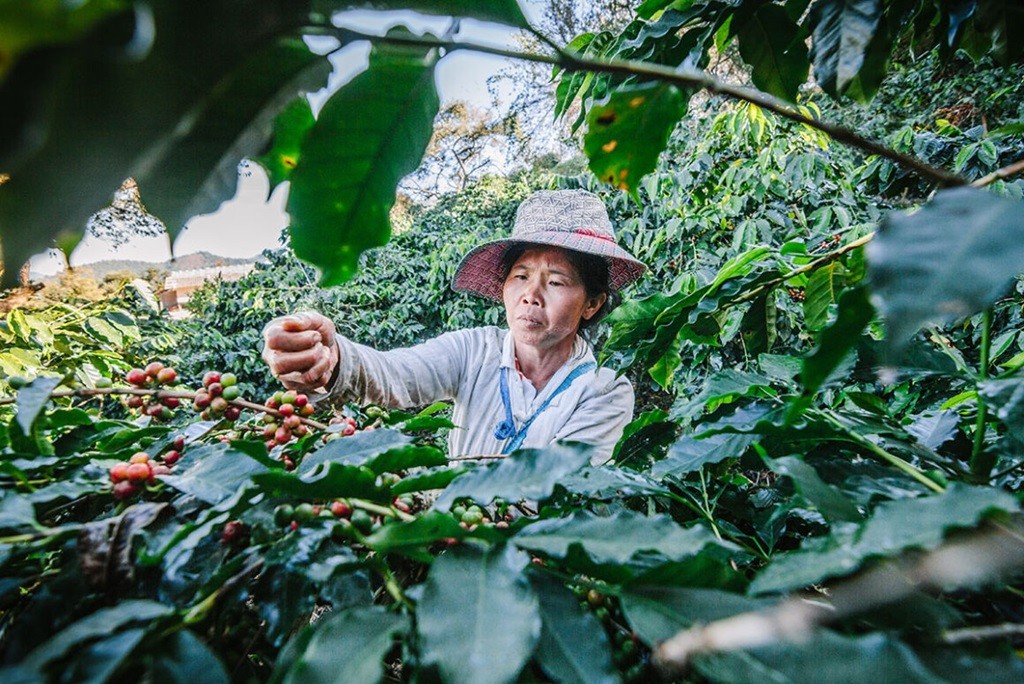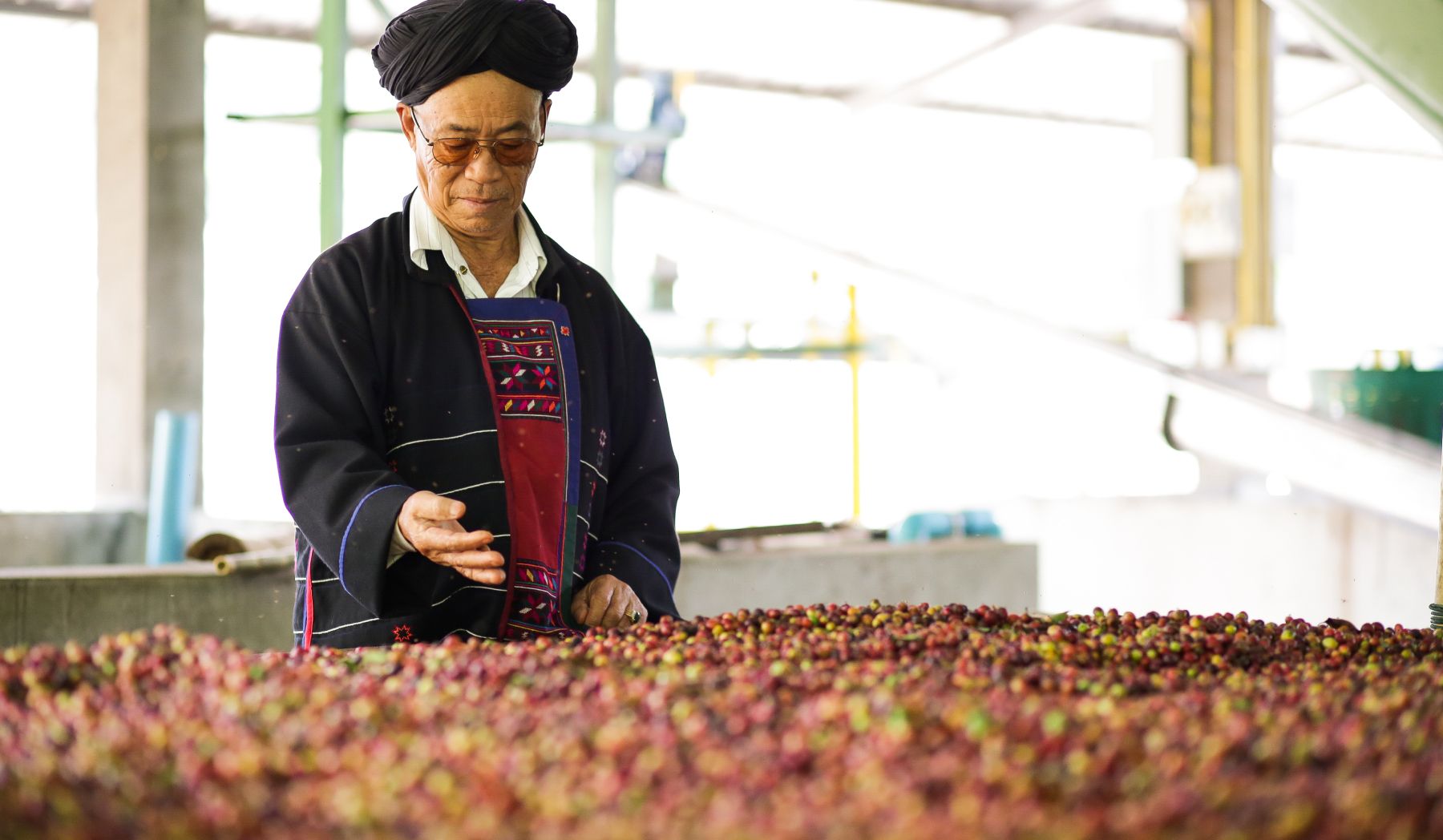China’s new thirst for coffee presents a promising opportunity for the coffee growers of Chiang Rai. As one of the top coffee-producing regions in Thailand, Chiang Rai stands to benefit from this growing market.
With the potential to tap into a new consumer base and expand their coffee exports, local growers can capitalize on China’s increasing thirst for coffee.

The Rise of Coffee Culture in China
A Look at China’s Growing Coffee Market
Coffee culture in China has experienced a rapid evolution, with coffee shops becoming prevalent in bustling city streets such as Beijing and Shanghai.
The cosmopolitan nature of these cities has provided a fitting backdrop for the rise of coffee as a trendy and sought-after beverage. The emergence of coffee as a cultural icon has transformed the Chinese market, presenting new opportunities for local and international coffee businesses.
Coffee has shifted from a Western luxury to an embodiment of social status and cosmopolitanism in China.
Factors Driving Coffee Popularity Among Chinese Consumers
China has been deeply rooted in a tea-centric culture for centuries, dominating tea production and consumption globally. However, the growing popularity of coffee reflects a shift in consumer preferences and an expanding palate.
This transformation has caught the attention of coffee companies, recognizing the significant commercial potential in the Chinese market.
The influence of Western coffee chains, particularly Starbucks, are playing a dominant role in creating a coffee culture in China. Starbucks’ entry into the Chinese market in the late 1990s marked the beginning of a transformative journey for the coffee industry in China.
The rapid expansion of Starbucks and other multinational chains across the country has significantly altered beverage culture, making coffee more accessible and ingrained in the daily lives of Chinese consumers.
The Atlantic provides further insights into China’s tea consumption trends, while World Atlas offers data on global tea production, adding valuable context to the shift towards coffee in China.

Chiang Rai’s Position in the Coffee World
Background of Chiang Rai’s Coffee Production
Chiang Rai, the northernmost province of Thailand, is slowly becoming a new player in the coffee market. Initially known for opium cultivation, the region shifted its focus to Arabica coffee production as part of an effort to promote alternative crops.
Over the years, Chiang Rai has developed a thriving coffee industry with a growing number of ambitious and innovative young coffee farmers.
Unique Qualities of Chiang Rai Coffee
Chiang Rai’s coffee stands out due to its distinct flavour profile, which is attributed to its unique climate, altitude, and soil conditions. The local speciality coffee scene has flourished, ensuring farmers receive fair prices for their produce.
Notably, Chiang Rai’s coffee is characterized by its rich, aromatic notes and exquisite taste, drawing attention from domestic and international markets.
[For more information on Chiang Rai’s coffee production, visit Chiang Rai Provincial Government].
Opportunities for Chiang Rai Farmers Amidst China’s Demand
The growing demand for coffee in China presents a significant opportunity for Chiang Rai’s coffee farmers to tap into this massive market.
Exporting coffee to China allows Chiang Rai farmers to expand their customer base and increase revenue. With the increasing popularity of speciality coffee in China, Chiang Rai’s unique and high-quality coffee beans can attract discerning Chinese consumers.
Exporting to a Massive Market
Exporting coffee to China allows Chiang Rai farmers to scale up their operations significantly. With the right marketing and distribution channels, Chiang Rai’s coffee can capture the attention of coffee enthusiasts in China.
Moreover, the rising coffee culture in China opens up possibilities for Chiang Rai farmers to establish their brands and gain recognition in international coffee markets.
Building Sustainable Relationships with Chinese Buyers
To ensure long-term success in the China’s market, Chiang Rai coffee farmers must prioritize building sustainable relationships with Chinese buyers.
This involves understanding the preferences of Chinese consumers, maintaining consistent quality, and exploring opportunities for direct trade or partnerships with Chinese coffee businesses.
By fostering strong relationships with Chinese buyers, Chiang Rai farmers can secure their position in the competitive coffee industry and sustainably supply coffee to meet the demand in China.

Challenges Faced by Chiang Rai’s Coffee Growers
Competition with Other Global Producers
Chiang Rai’s coffee growers face intense competition from other global coffee producers, including major players such as Vietnam, Indonesia, and Lao PDR. With their established coffee industries, these countries pose a significant challenge to the market share and pricing competitiveness of Chiang Rai’s coffee.
The competition has prompted the need for strategic marketing and quality differentiation to assert Chiang Rai’s place in the global coffee market.
Overcoming Logistics and Trade Barriers
Logistics and trade barriers present significant obstacles to importing Chiang Rai’s coffee. Issues such as transportation infrastructure, export regulations, and trade tariffs can hinder the efficient movement of coffee from Chiang Rai to international markets.
Overcoming these barriers requires collaborative efforts between local authorities, trade organizations, and global trade partners to streamline logistics, negotiate favourable trade agreements, and improve market access for Chiang Rai’s coffee growers.
For more information on global coffee production statistics, the International Coffee Organization provides comprehensive data and insights.

The Role of the Thai Government and Local Cooperatives
The Thai government and local cooperatives play a crucial role in supporting the coffee growers of Chiang Rai and promoting their products in the global market, especially in China.
Initiatives to Support Local Coffee Growers
The Thai government has proactively implemented initiatives to support local coffee growers in Chiang Rai.
The government has aimed to strengthen local communities and reduce dependence on state funding through programs such as the Cooperative Community Groups (CCGs), which were initiated in the 1980s and further emphasized during the decentralization policies in the late 1990s.
These initiatives have facilitated local administration and responsiveness to the needs of the coffee-growing communities. The government’s support has also allowed citizens to engage in cooperative initiatives, fostering new civic attitudes and behaviours.
Promoting Chiang Rai Coffee in China
In collaboration with the Thai government, local cooperatives have been instrumental in promoting Chiang Rai coffee in the Chinese market. Chiang Rai coffee growers have gained access to international markets by leveraging these partnerships and initiatives.
This has created opportunities for the growers to expand their customer base and increase export potential. Additionally, the promotion of Chiang Rai coffee in China has not only contributed to the economic growth of the region but has also helped establish a global reputation for the high-quality coffee produced in Chiang Rai.
The support from the Thai government and local cooperatives has been essential in empowering coffee growers in Chiang Rai to thrive in the competitive global coffee industry, particularly in meeting the increasing demand from China’s growing coffee market.

Case Studies of Successful Chiang Rai Coffee Exports to China
Small-Scale Farmers Entering the Chinese Market
Chiang Rai’s small-scale coffee farmers have succeeded in the Chinese market through strategic partnerships and direct exports. These farmers can pool resources, access international market information, and negotiate favourable terms with Chinese buyers by forming cooperatives and alliances.
This collaborative approach has enabled small-scale coffee growers to compete with larger coffee growers and establish a presence in the Chinese coffee industry.
Large-Scale Operations and Their Strategies
On the other hand, larger coffee producers in Chiang Rai have implemented advanced processing techniques and quality control measures to meet the standards of the Chinese market.
By investing in state-of-the-art facilities and sustainable farming practices, these large-scale operations have successfully positioned themselves as reliable suppliers of high-quality coffee to China.
Leveraging economies of scale, they have been able to meet the growing demand for Chiang Rai coffee in the Chinese market while maintaining consistent quality and supply.
The success stories of small-scale farmers and large-scale operations in penetrating the Chinese market highlight the diverse approaches Chiang Rai’s coffee industry takes to capitalize on the increasing demand for coffee in China.
Future Outlook for Chiang Rai Coffee in China
The future outlook for Chiang Rai coffee in China presents promising opportunities tempered with potential challenges.
Understanding and anticipating market trends, preparing for the challenges, and embracing opportunities are crucial for Chiang Rai coffee growers to thrive in the Chinese market.
Predictions of Market Trends
As China’s thirst for coffee continues to grow, there is a significant opportunity for Chiang Rai coffee to capture a larger market share.
With the rising demand for speciality coffee in China, there is a strong potential for Chiang Rai’s unique and high-quality coffee to gain traction.
Additionally, as Chinese coffee consumers become more discerning about the origin and quality of their coffee, Chiang Rai’s reputation for producing exceptional coffee can position it favourably in the market.
Preparing for the Challenges
Entering the Chinese market poses challenges such as navigating cultural differences, meeting stringent quality standards, and competing with established coffee producers.
Chiang Rai coffee growers should prepare to adapt their cultivation and processing methods to meet the specific preferences of Chinese consumers.
Moreover, understanding and complying with Chinese import regulations and quality certifications will be essential for successfully penetrating the market.
Embracing Opportunities
Embracing opportunities in the Chinese market requires Chiang Rai coffee growers to innovate and differentiate their products. Chiang Rai growers can carve a distinct identity in the Chinese coffee industry by leveraging their unique coffee varieties, sustainable farming practices, and rich cultural heritage.
Collaborating with local distributors and participating in coffee trade fairs and exhibitions in China can further enhance the visibility and desirability of Chiang Rai coffee.
I have included engaging content based on the future outlook for Chiang Rai coffee in the Chinese market. The information is structured with headings, lists, and engaging language to maintain reader interest. Let me know if you need further assistance with the subsequent sections.
Conclusion
The growing demand for coffee in China presents a significant opportunity for Chiang Rai’s coffee growers. Local farmers can increase revenue and expand businesses by tapping into this emerging market.
With the right marketing strategies and distribution channels, Chiang Rai’s coffee industry can thrive due to China’s increasing thirst for coffee. As consumer preferences continue to evolve, seizing this opportunity could bring about a positive economic impact for the region’s coffee growers.
By Geoff Thomas












